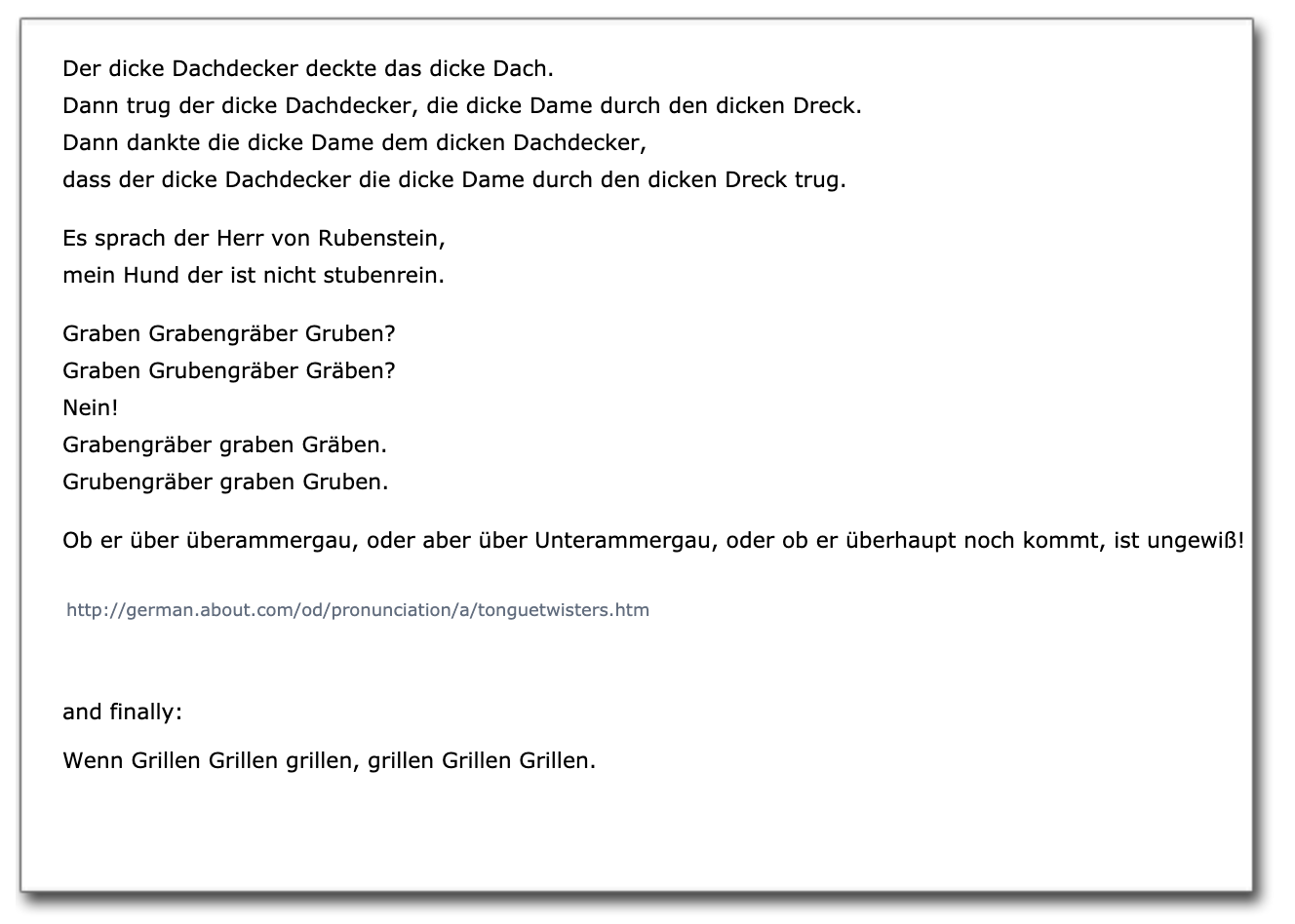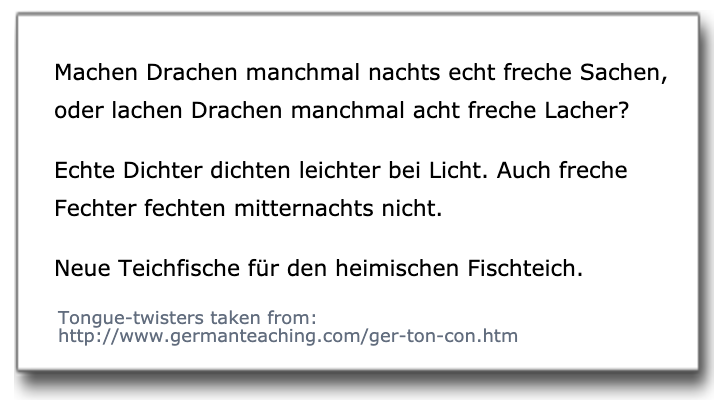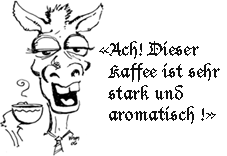4.4: Aussprache
- Page ID
- 103783
Kapitel 4: Three more exciting sounds – /r/ /ç/ and /χ/
1. DAS 'R'
The German r is one of the most challenging consonants for native speakers of English to master. Its pronunciation depends on a number of factors, including its position within a word, how fast the speaker is talking, and where the speaker is from. In this chapter, we’ll focus on how the first two factors affect the pronunciation of r in Standard German (for regional variations, see chapters 7, 8 and 9)
By itself, the German r sounds a lot like the word "err" in English as if you’re gargling mouthwash. But what happens when it’s placed in words?
Click on the audio symbol and pay close attention to the differences you hear between the r sounds! Roll mouse over German text to view English translations.
| die Reise |
| die Karten |
| der Computer |
Could you hear the differences? These three sounds are called allophones of /r/. Allophones are different ways of pronouncing a particular sound in a language.
When the letter r appears at the beginning of a word, as in Reise, or immediately after another consonant as in Freizeit, it is pronounced deep in the throat, almost as if you’re gargling mouthwash.
die Reise
When it appears between a vowel and a consonant, as in Karten, it tends to take on the qualities of the vowel that precedes it, thereby losing its “husky” quality. In rapid speech, it can be difficult to tell that the r is actually there (think of the South Boston accent or British English where the Queen’s r is veRRRy much rolled, thank you veRRRy much.)!
Karten
A similar phenomenon occurs when the letter r is at the end of a word, as in Computer. Technically, the last two letters e and r could be pronounced separately to create a sound similar to the English word "err," but when you speak quickly, the r sound usually disappears. In its place, you have something that sounds a little like the German letter a. This sound is known in linguistics as dark schwa.
Computer
Click on the audio symbol and pay close attention to the differences you hear between the r sounds! Roll mouse over German text to view English translations.
| gargle r | husky r | dark schwa r | |
| die Freizeit | der Garten | klettern | |
| die Freunde | [ihr] fahrt | das Theater | |
| das Restaurant | das Konzert | die Oper | |
| spazieren | der Park | die Kleider | |
| der Rock | die Shorts | der Pullover | |
| hören | die Sportjacke | der Sportler |
Now try your knowledge on these tongue-twisters:

Finally, the r sound can sound a little posh. After a preceding u, ü, o, ö, or i sound, and followed by a consonant or in word-final position, it almost sounds like a separate syllable like an '-ah'.
Computer
Listen to sample vocabulary. Roll mouse over German text to view English translations:
| nur |
| die Uhr |
| für |
| die Tür |
| vor |
| das Tor |
| die Körbe |
| die Hörner |
2. DAS 'CH'
Ch is a consonant sequence that appears frequently in English. There is more than one way to pronounce this sequence – like the ch in "bench" (phonetic symbol /t∫/) or the ch in “Christmas” (/k/).
The ch sequence also appears frequently in German, and there are also two ways to pronounce it, both of which are fairly tricky for English-speaking students, since there are no equivalent sounds in English!
Click on the audio symbol to hear the pronunciation of these words. Roll mouse over German text to view English translations:
| /ç/ | /χ/ |
| zeichnen | machen |
| möchte | das Schach |
| zum Griechen gehen | die Nacht |
| gefährlich | lachen |
| ich | im Internet suchen |
| München | kochen |
| the 'ch' combination is preceded by so-called front-vowels or diphthongs (e, i, ö, ü, ai, ei, ie, äu, eu) or a consonant |
the 'ch' combination is preceeded by back-vowels (a, o, u) |
| sounds like a hissing cat or air going out of a balloon |
sounds like you have a frog in your throat or when you are gargling with mouthwash in the back of your throat |
In case you are interested: the main difference between the two sequences is the place of articulation (i.e., the place in your vocal tract where they are formed). Whereas /ç/ is articulated by putting the middle of your tongue below the hard palate (i.e., the front of the roof of your mouth), /χ/ is articulated by pulling your tongue back into the area of the soft palate (i.e., as far back as possible on the roof of your mouth).
Don’t worry if these sounds are challenging for you at first – you’ll get the hang of them soon enough!
And here are, of course, some tongue-twisters for you to practice with:




